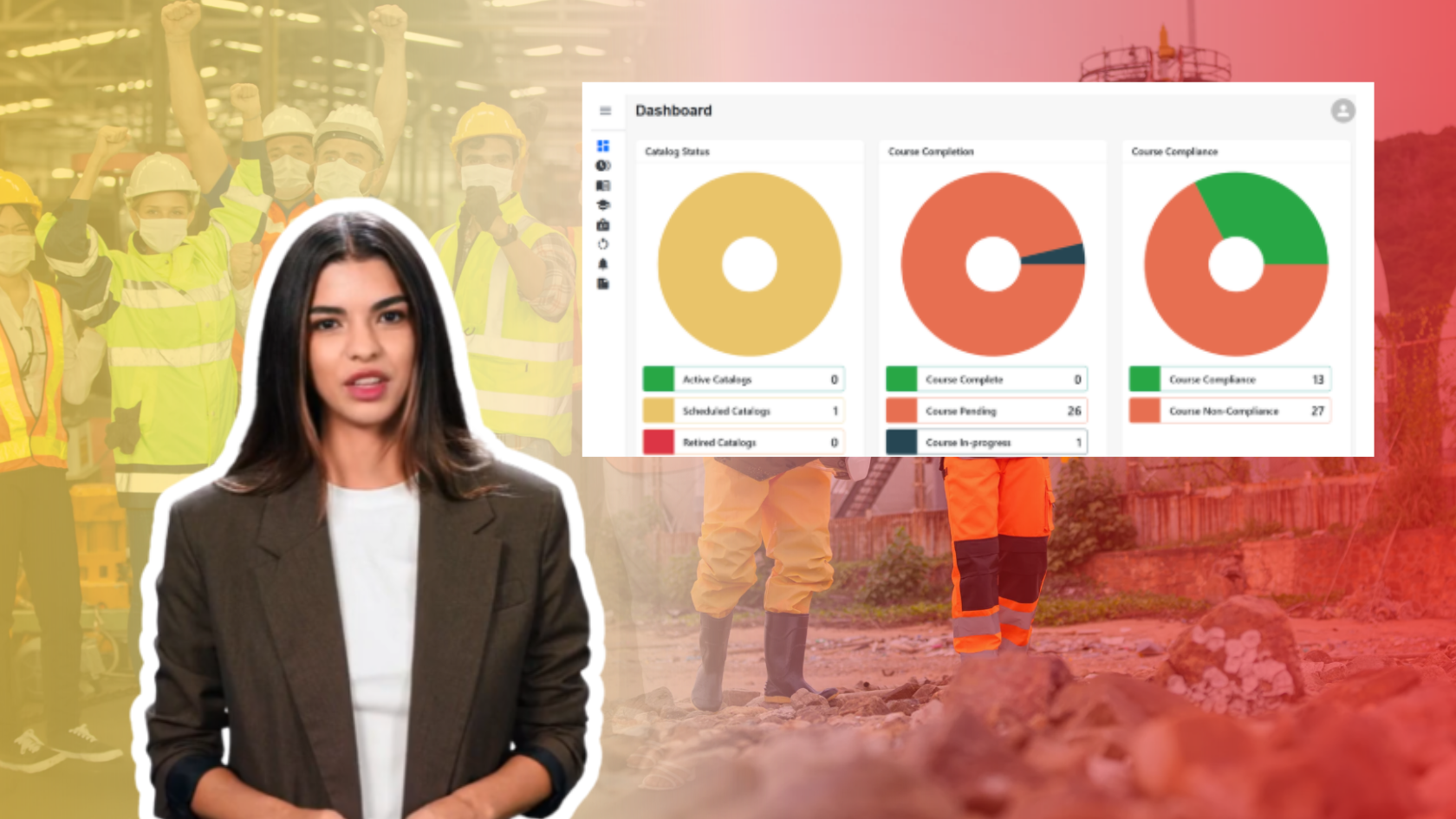Video Transcription:
Industrial hygiene certification validates expertise in identifying and controlling workplace health hazards. Certified professionals assess risks associated with chemicals, noise, and biological agents to ensure compliance with safety standards. Achieving this certification enhances career growth and strengthens organizational health programs. CloudSDS supports organizations to build comprehensive in-house training modules tailored to industrial hygiene principles, easy access to Safety Data Sheets, and automated compliance tracking. Our LMS platform enables seamless course assignment, progress monitoring, and certification reporting, making industrial hygiene certification more efficient and manageable for both learners and EHS teams. So, what are you waiting for? Join CloudSDS now!
Explanation:
Industrial hygiene certification is a professional credential that signifies specialized knowledge and expertise in identifying, evaluating, and controlling workplace health hazards. As industries increasingly prioritize employee health and safety, obtaining industrial hygiene certification has become essential for:
- Occupational safety professionals
- Environmental health specialists, and
- EHS managers
This certification not only validates a professional’s competency but also enhances workplace health programs, ensuring compliance with regulatory standards and reducing risks associated with hazardous exposures.
What Is Industrial Hygiene?
Industrial hygiene is the science of anticipating, recognizing, evaluating, and controlling environmental factors or stresses in the workplace that may cause:
- Sickness
- Impaired health, or
- Discomfort to workers (mostly related to their health and overall wellbeing)
These hazards can be chemical, physical, biological, or ergonomic in nature. Industrial hygienists use a combination of monitoring, sampling, and control strategies to minimize risk and protect worker health.
Importance of Industrial Hygiene Certification
Obtaining certification in industrial hygiene demonstrates a high level of expertise recognized by employers, regulators, and peers. Certified professionals are equipped to:
- Identify potential hazards such as chemical exposure, noise, radiation, and biohazards
- Conduct thorough risk assessments and exposure monitoring
- Develop and implement control solutions like ventilation, personal protective equipment (PPE), and administrative controls
- Ensure compliance with regulations from OSHA, NIOSH, EPA, and other bodies
- Lead workplace health and safety programs that reduce injuries, illnesses, and downtime
For organizations, having certified industrial hygienists strengthens health and safety programs, promotes regulatory compliance, and improves overall operational efficiency.
Common Industrial Hygiene Certifications
Several certification programs are recognized globally, including:
- Certified Industrial Hygienist (CIH) by the American Board of Industrial Hygiene (ABIH): This is the most widely recognized certification, requiring a combination of education, work experience, and passing a rigorous exam.
- Registered Industrial Hygienist (RIH): Also awarded by ABIH, recognizing Canadian professionals.
- Certified Safety Professional (CSP) by the Board of Certified Safety Professionals (BCSP): Often held concurrently by industrial hygienists.
However, there are other specialized certifications that focus on topics such as hazardous materials management or occupational health.
Preparing for Industrial Hygiene Certification
Preparation involves gaining relevant education (often a degree in industrial hygiene, safety engineering, environmental health, or related fields), accumulating professional experience, and undertaking exam-focused study. Candidates study areas such as toxicology, epidemiology, industrial ventilation, exposure assessment, and regulatory compliance.
How to Support Industrial Hygiene Certification
Find a powerful platform that is designed to streamline learning and compliance management for EHS professionals. This way you can create an ideal tool for those pursuing industrial hygiene certification. It offers:
- Tailored Training Modules: AI-powered Platform such as CloudSDS provides comprehensive, up-to-date courses on industrial hygiene principles, chemical hazard communication, exposure controls, and workplace safety protocols.
- Access to Safety Data Sheets (SDS): Make sure the platform offers immediate access to detailed chemical safety data facilitates understanding of hazards and reinforces learning.
- Automated Course Management: Efficient assigning, scheduling, and tracking of training ensure candidates stay on course toward certification.
- Progress Monitoring and Reporting: Learners and managers can monitor progress, understand knowledge gaps, and prepare thoroughly for certification exams.
- Compliance Assurance: The platform generates certification reports and audit-ready documentation, supporting organizations in meeting regulatory requirements.
Conclusion
Industrial hygiene certification is a critical milestone for professionals committed to workplace health and safety. It empowers them to effectively manage occupational hazards and contribute to safer work environments. Leveraging technology like CloudSDS enhances this journey by providing targeted training, streamlined compliance tracking, and robust resource access, ultimately supporting both individual certification success and organizational EHS goals.

Leave A Comment